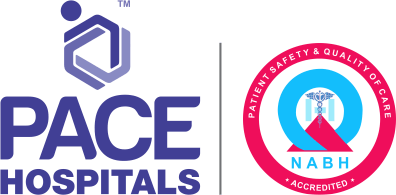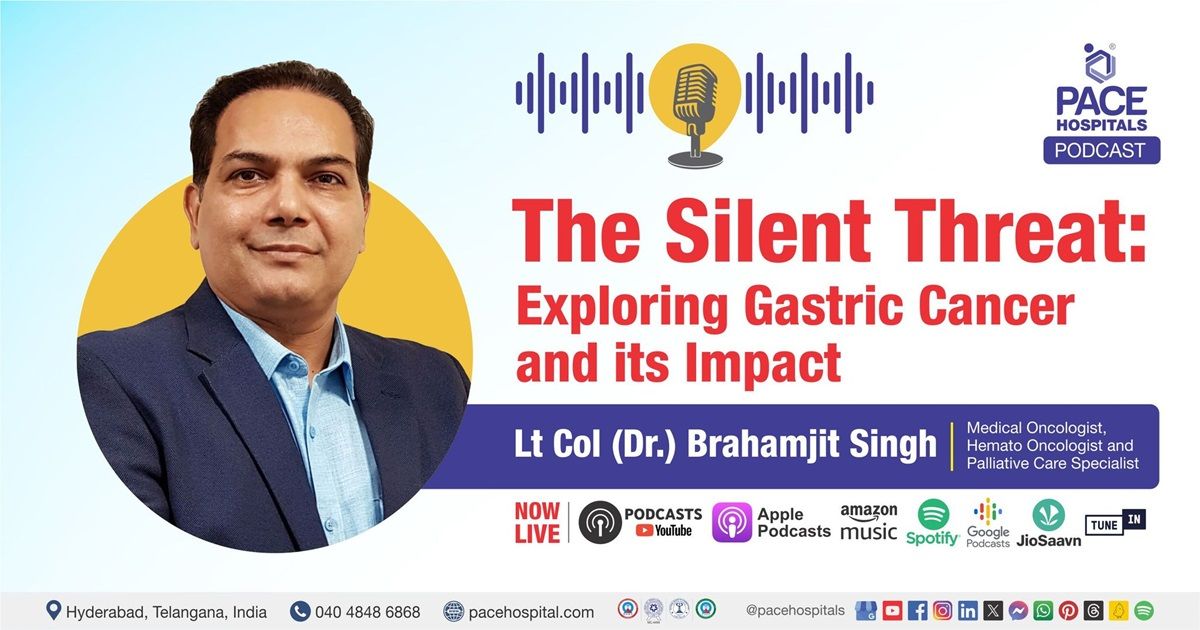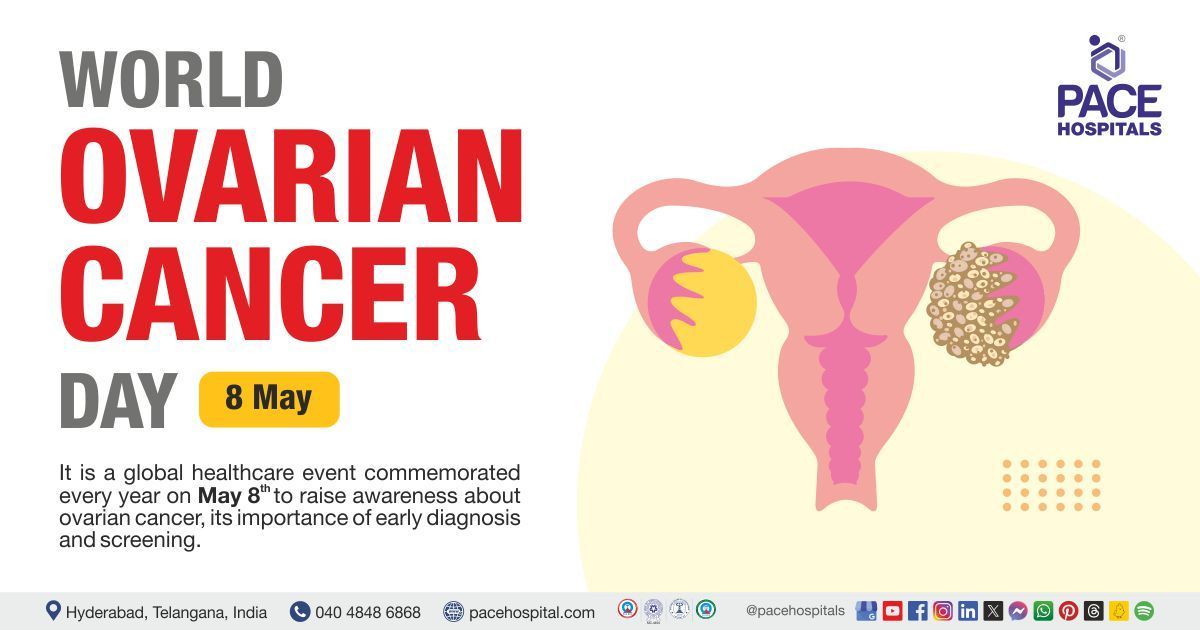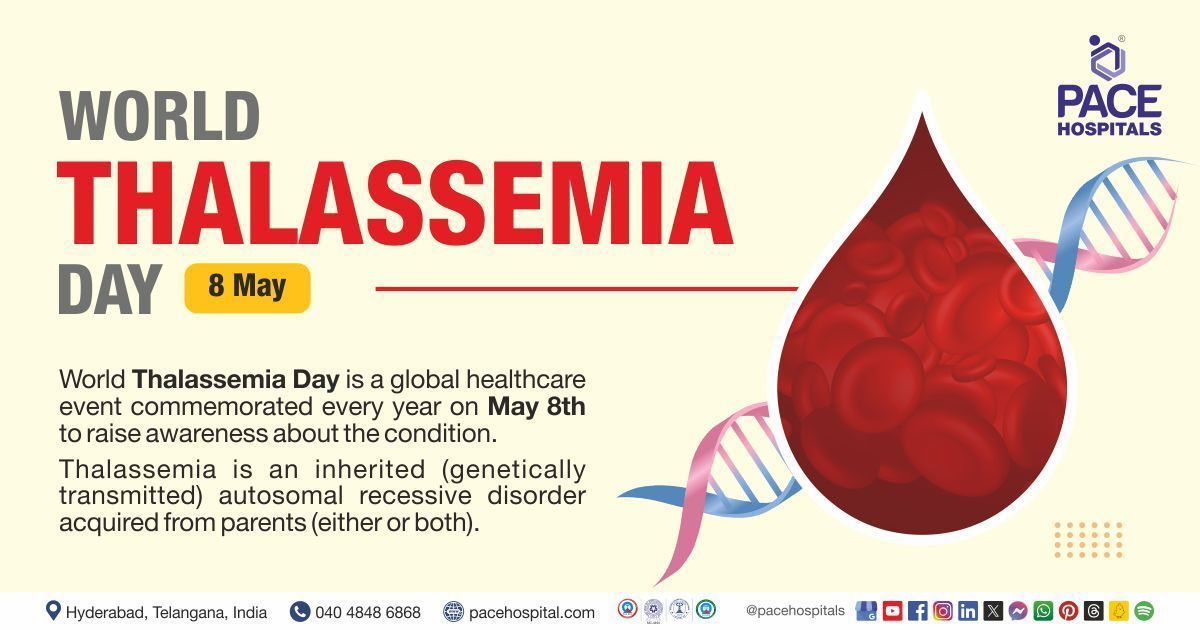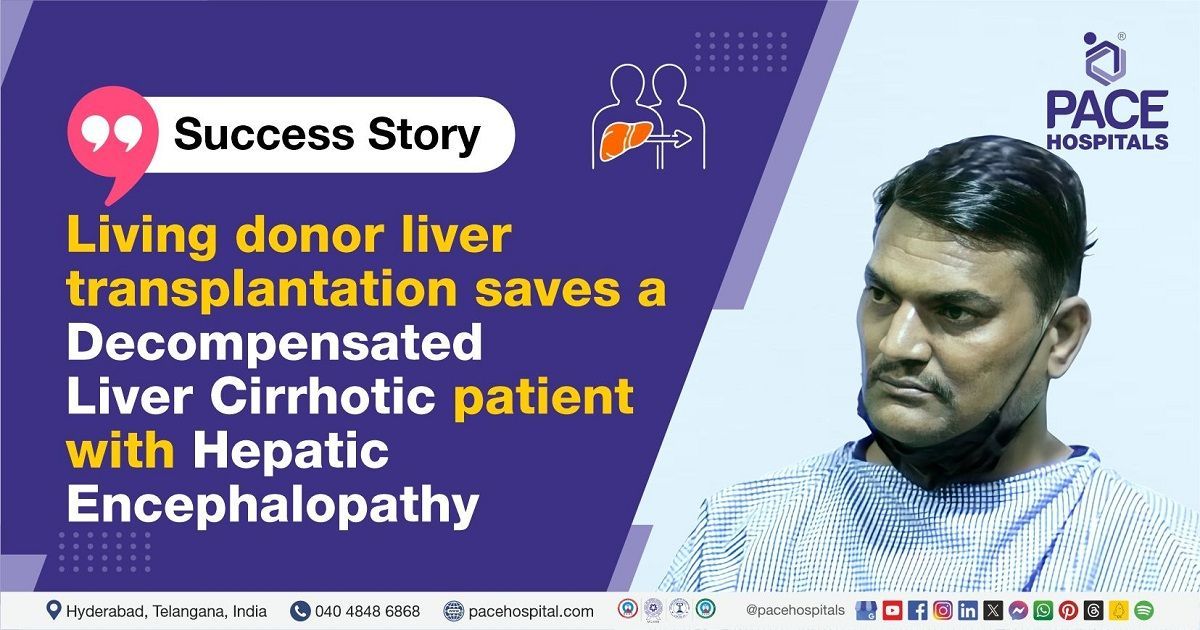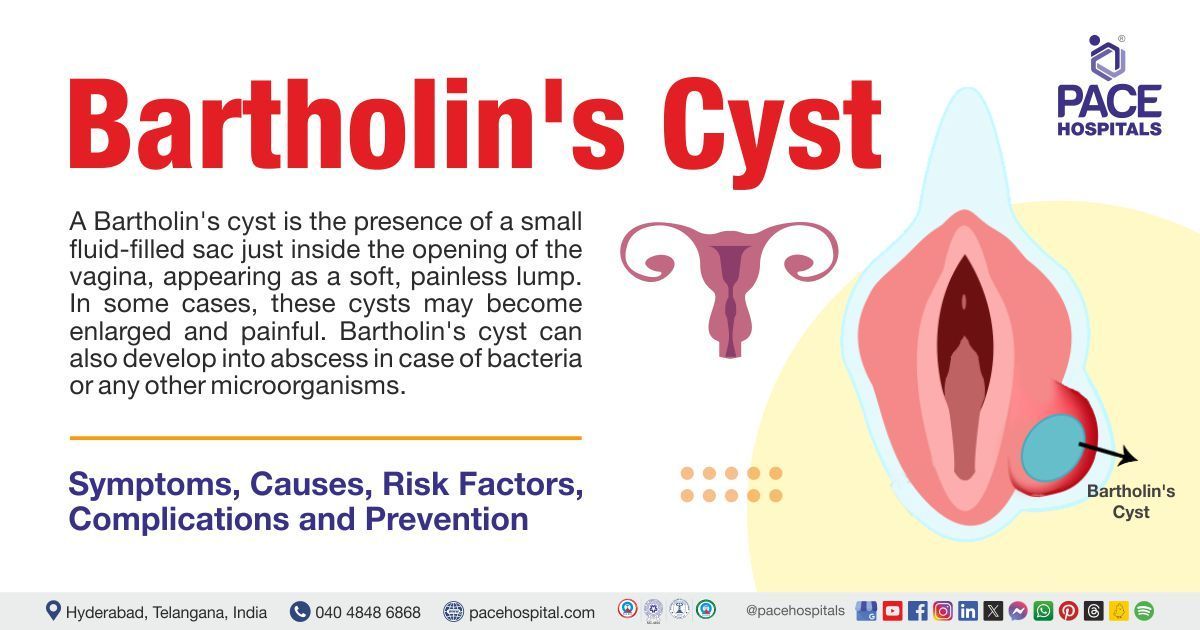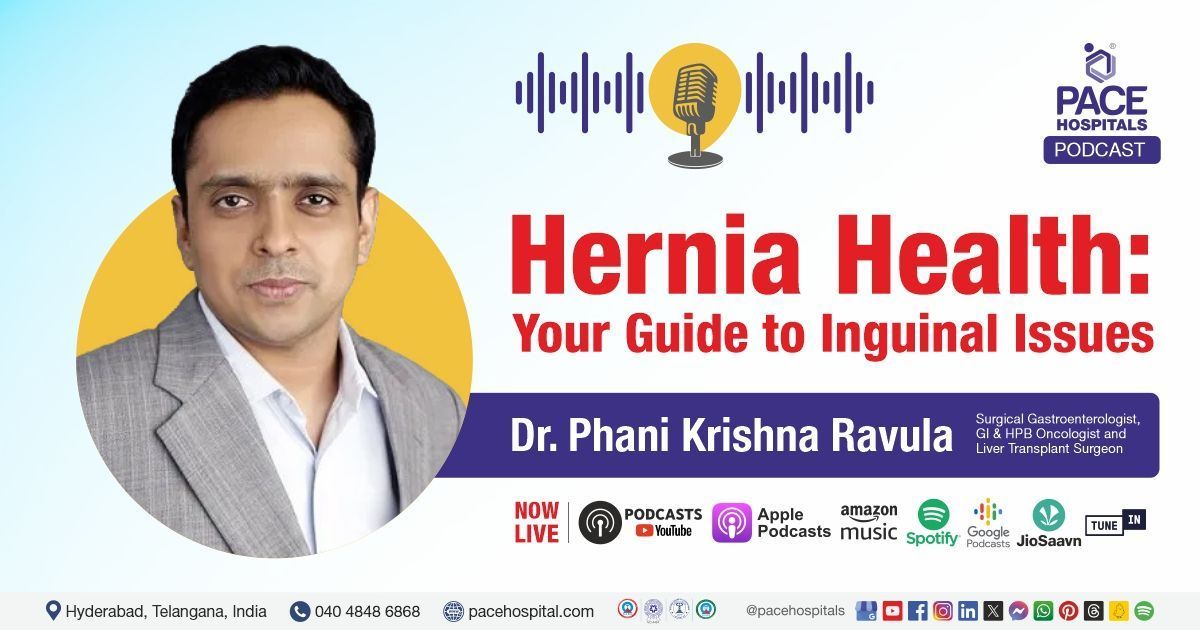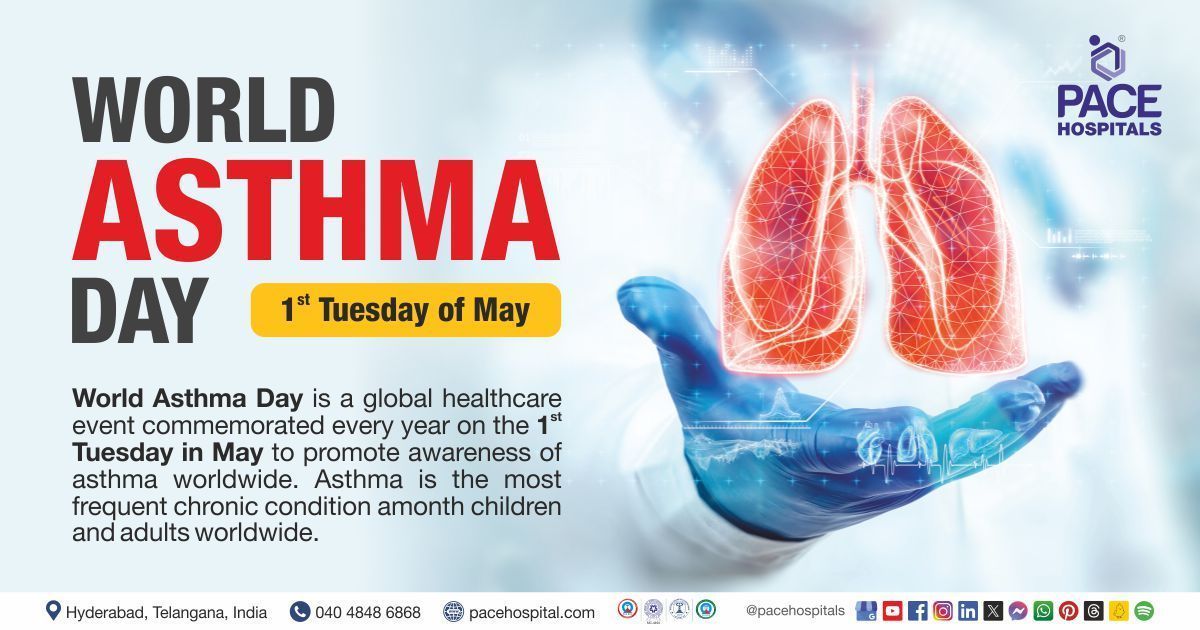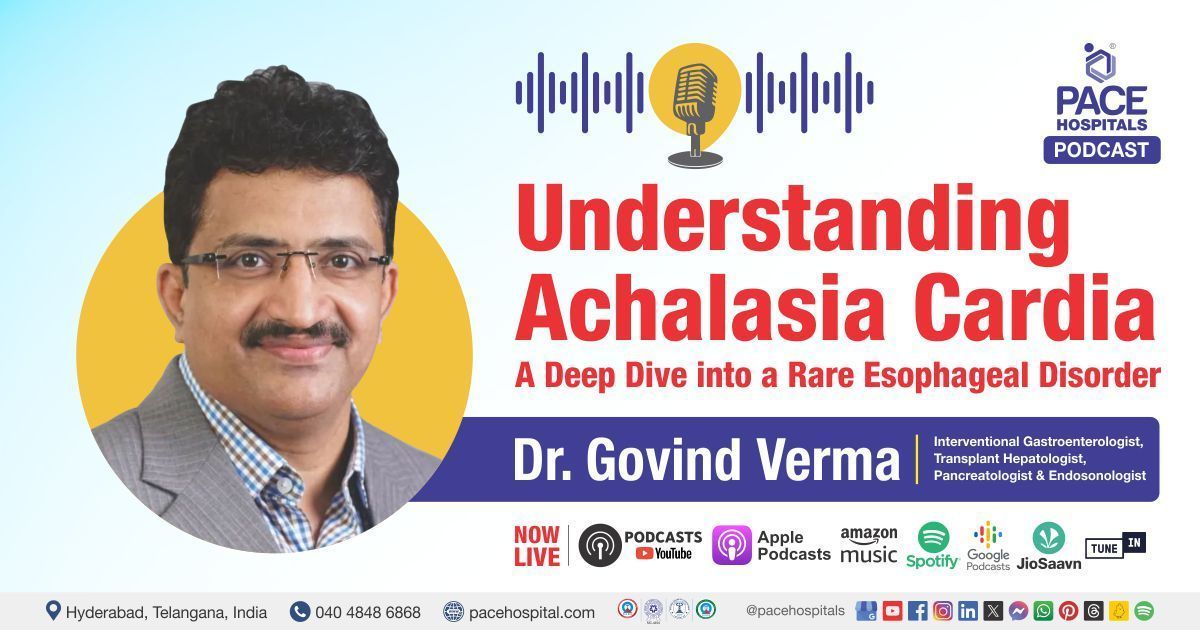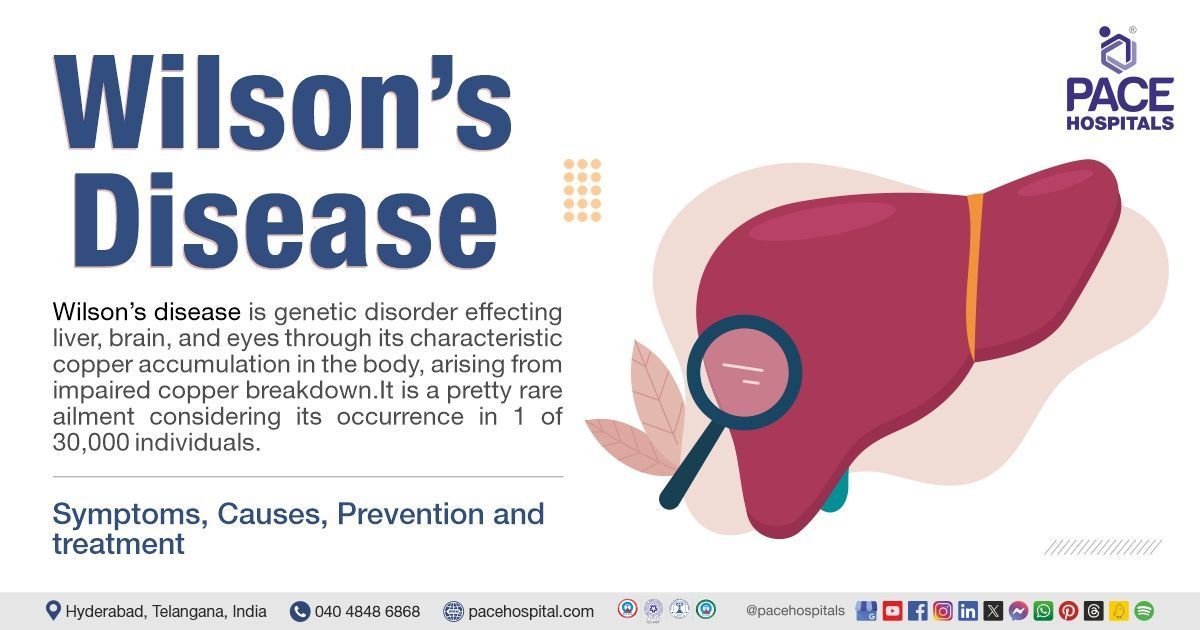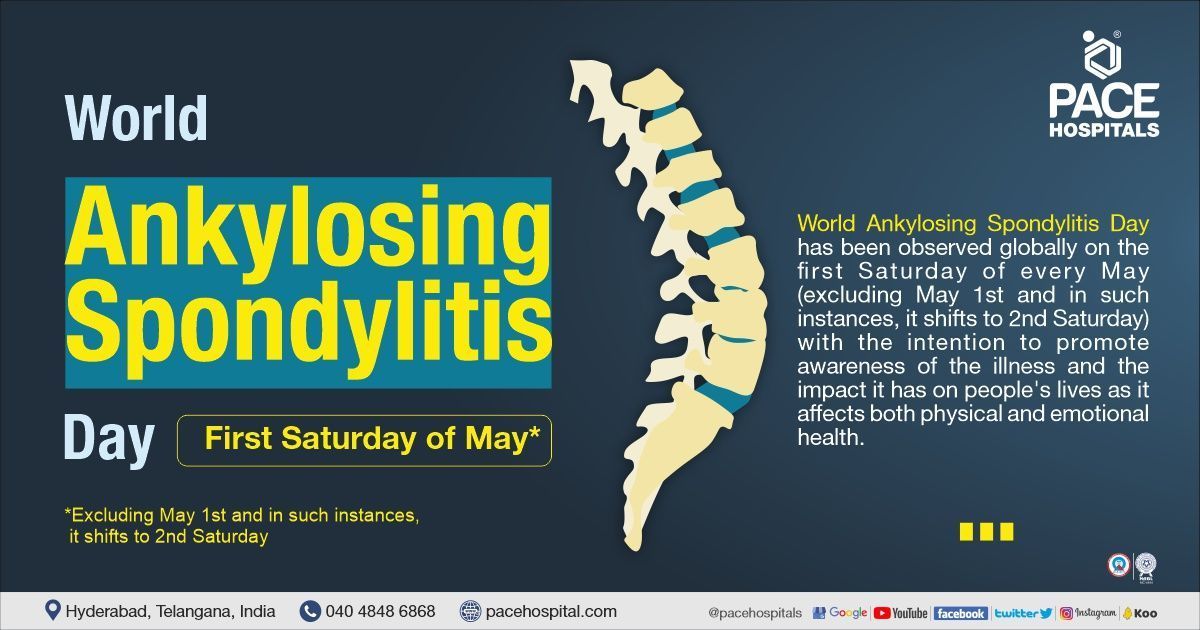The Silent Threat - Exploring Gastric Cancer and Its Impact
Listen to
Gastric cancer, or stomach cancer, develops in the stomach lining. It is one of the most common forms of cancer worldwide, although its incidence varies across different regions. While the exact cause of gastric cancer remains unclear, several factors contribute to its development, including genetic predisposition, lifestyle choices, and bacterial infections like H. pylori.
Gastric cancer is a complicated illness that needs a comprehensive plan of action for prevention, diagnosis, and treatment. In this episode of gastric cancer podcast we will unravel by raising awareness, its early detections, and comprehensive care, we can work towards improving outcomes and enhancing the quality of life for people affected by gastric cancer.
Join the
PACE Hospitals Podcast with
Lt Col (Dr.) Brahamjit Singh - Consultant Medical Oncologist, Hemato Oncologist and Palliative Care Specialist at PACE Hospitals, Hitech City, Hyderabad, India, to uncover the secrets, face the difficulties, and equip ourselves with knowledge and comprehension.
-
Transcript
Host: Hello and welcome to Pace Hospital's podcast. Today we'll explore gastric cancer, its risk factors, symptoms, diagnosis and treatment options.
Joining us today Lt Col (Dr.)Brahmajit Singh, consultant medical oncologist, hemato oncologist and palliative care specialist, having wide expertise in treating and managing gastric cancer. In today's episode, he would like to shine a spotlight on one of the most prevalent, yet often misunderstood forms of cancer, gastric cancer and also he would like to delve into the depths of this disease to unravel its complexities and shed light on the paths for prevention, diagnosis and treatment.
Dr. Brahmajit Singh, thank you for joining us at Pace Hospital's high tech city.
Doctor: Thank you for inviting me today. I would like to take you on a small journey with me on a profound exploration of gastric cancer, seeking to unravel its complexities such as the risk factors, diagnosis, treatment and understand its impact and uncover pathways and avenues for healing, hope and resilience.
Host: Dr. Brahmajit Singh, thank you for joining us. Let's start by understanding what is stomach cancer and which part of the stomach is generally affected?
Doctor: Gastric cancer also known as stomach cancer. Any cancer that starts in the stomach is called gastric or stomach cancer. The stomach has three parts, the cardia, which is the upper portion which connects with the food pipe known as the esophagus, the fungus, which is the middle part of the body of the stomach, and antrum and pyloris, which are the lower parts of the stomach. So the cancer can arise from any of these parts.
Host : Why should we worry about gastric cancer and what is the prevalence of stomach cancer in India?
Doctor: A very pertinent question. See the cancer of the stomach ranks amongst the top five most common cancers and is one of the leading cause of cancer death worldwide.
In India, the number of annual new gastric cancer cases is approximately 34,000 with a male predominance. The ratio of male to female is two is to one and it is the second most common cause of cancer related death among indian men and women in the age between 15 and 44 years.
In India, the age range of stomach cancer is 35 to 55 years in the south and 45 to 55 years in north. It is estimated that by the end of the year 2022, approximately 55,000 new gastric cancer cases will be reported annually in India.
What's even more distressing is that the case fatality ratio, that is, number of cases who die because of gastric cancer, is higher than for common cancers such as of the intestines, breast and prostate cancer, because despite advances in diagnosis, the disease is usually detected at a very advanced stage and stage four obviously has a very poor prognosis, with a five year survival rate of only around 20%.
In India, the incidence of gastric cancer has been relatively high in southern India, namely in Chennai. However, recent data indicate that the incident rates are highest in northeast, that is, in the Mizoram area. These differences in incidence rates can be attributed to many factors, but refer particularly to differences in dietary habits and infections of pylotch pylori.
Host: Can you explain how the effectiveness of preventive measures and early gastric cancer intervention can be carried out?
Doctor: That's the basic aim of this talk with you today. See, in order to understand this and to answer this question, we need to know the facts, such as what are the symptoms, what are the types of gastric cancer and what are the risk factors that predispose us to develop this cancer symptom unfortunately, the symptoms are very non-specific.
They do not give any hint towards gastric cancer, most common being fatigue, feeling bloated after eating, persistent heartburn, stomach pain and unexplained weight loss.
Host: So what are the risk factors, what is the etiology of gastric cancer?
Doctor: Actually, the cause of gastric cancer is multifactorial. We cannot attribute it to one particular cause, but in more than 80% of the cases it has been attributed to an infection by a bacteria known as H. Pylori.
Now, this infection, in addition to diet, lifestyle, genetic factors, socioeconomic factors and other factors contribute to gastric carcinogenesis. H. Pylori this bacteria is a gram negative bacterium that lives and multiplies in the stomach mucosa and is considered one of the most important risk factors for gastric cancer.
The point of concern is that in India, the seroprevalence of H. Pylori infection in adult population is around 55% to 92% as compared to 44% in chinese population and 55% in japanese population. So we have a very high incidence of infection by H. Pylori. The other factor is diet, diet also plays a major role in gastric carcinogenesis.
Globally, the literature suggests that population at high risk for stomach cancer consume diets which are rich in starch and poor in protein quality and are not inclined to eat fresh fruits and vegetables.
In the Indian scenario, pickled food, high rice intake, spicy food, excess chili consumption, consumption of very hot food, smoked dried salted meat, use of soda and consumption of dried salted fish have emerged as significant dietary risk factors another important aspect is the lifestyle alcohol, obviously, and tobacco both have been implicated as an independent risk factors for gastric carcinogenesis weight, overweight status and obesity are associated with an increased risk of gastric cancer.
The strength of this association increases with the increase in the body mass index, that is more the weight, higher the bmi, more the chance of developing gastric cancer. Then there is also a component of genetic susceptibility.
A family history of gastric cancer is observed in about ten to 15% of cases. A history of gastric cancer in siblings or parents is associated with at least two times increased risk of gastric cancer. So, in summary, I just told you about the risk factors out of which expalury is very important.
Diet is a very important factor for us and so is lifestyle and weight. Now, if we can modify our diet, our lifestyle and can control our weight, we will decrease the risk of developing gastric cancer.
Host: What are the different types of screening tests available for gastric cancer?
Doctor: The commonly used procedures to diagnose stomach cancer include number one, endoscopy. A thin tube with a tiny camera is passed down the throat and into the stomach to look for the tumor. This is a painless procedure, a very common procedure which is done on an OPD basis.
Second, we do a biopsy of the tumor. A piece of the tissue sample is taken as biopsy during endoscopy. Again, this is a very painless procedure. Then no known side effects happen to the patient and this tissue is then further evaluated and a very important step because we need to confirm what type of cancer it is and what therapy can be given for that.
And after endoscopy and biopsy, we have certain imaging tests. Imaging tests are done to find the extent of the disease, that is for staging. And these include CT scan, MRI and PEC scan and Miriam follow and in some cases we might need to do an explorative surgery. Once a reason is taken to operate, the exploratory laparoscopy is undertaken to confirm operative ability.
Host: What are the treatment options for stomach cancer?
Doctor: So the treatment of gastric cancer now it's very important that once the diagnosis and the stage of the cancer is confirmed, we have to confirm the diagnosis by a tissue sample and the stage of the cancer by imaging. The medical oncologist, that is me and my surgical counterpart, the surgical oncologist, decide the next treatment options and this depends on the stage and the general condition of the patient.
If it is early stage and patient is fit for surgery, surgery is preferred. However, because most of the cases are diagnosed at a later stage, either they are locally advanced or metastatic cancer. Surgery is usually not undertaken and they are not fit for surgery. So the main treatment is chemotherapy and or targeted therapy. By targeted therapy I mean we use specific drugs to attack specific abnormalities within the cancer cells with or without radiation.
Host: Can stomach cancer be prevented? If so, can you share the preventive measures?
Doctor: Now, one of the most important aspect about gastric cancer is that it can be prevented. Yes, it can be prevented. Now, primary prevention of gastric cancer focuses on the modifiable risk factors for gastric cancer and strategies have been evaluated which include eradication of expiratory infection.
Dietary and lifestyle interventions, modulation of dietary patterns and changes in cooking practices are believed to significantly reduce gastric cancer risk. Tobacco and alcohol consumption are other risk factors that have to be targeted by lifestyle modification.
As survival depends on the stage of cancer, early diagnosis definitely prolongs the survival.
Awareness about gastric cancer risk factors measures taken to prevent the cancer along with an early reporting to the gastroenterologist for evaluation of symptoms will help us not only in diagnosis early diagnosis, but to help you in surviving for a longer period of time and maintaining your quality of life.
These are the components that constitute the crux of my talk. I have tried to cover the basic and relevant aspects of gastric cancer. In case there are any issues you need more clarification about, you are most welcome to contact us at Pace Hospital.
Thank you Dr. Brahamjit Singh for sharing crucial information regarding the gastric cancer to our listeners.
Doctor: I hope this information can be valuable for the listeners that knowledge is power, and through awareness, advocacy, and support, we can make strides in the fight against gastric cancer.
Host: If any of you have any further questions regarding gastric cancer please don’t hesitate to consult an oncologist and remember, awareness is the first step towards prevention, early detection, and effective treatment.
We will see you soon on PACE Hospitals Podcast with another episode until next time, stay informed, stay vigilant, and stay hopeful. Thank you.
Request an appointment
Fill in the appointment form or call us instantly to book a confirmed appointment with our super specialist at 04048486868
Appointment request - health articles
Thank you for contacting us. We will get back to you as soon as possible. Kindly save these contact details in your contacts to receive calls and messages:-
Appointment Desk: 04048486868
Whatsapp: 8977889778
Regards,
Pace Hospitals
Hitech City and Madinaguda
Hyderabad, Telangana, India.
Oops, there was an error sending your message. Please try again later. We will get back to you as soon as possible. Kindly save these contact details in your contacts to receive calls and messages:-
Appointment Desk: 04048486868
Whatsapp: 8977889778
Regards,
Pace Hospitals
Hitech City and Madinaguda
Hyderabad, Telangana, India.
Our Locations
Subscribe to our newsletter and stay updated with the latest health information.
By clicking on subscribe now, you accept to receive communications from PACE Hospitals on email, SMS and Whatsapp.
Subscribe to PACE Hospitals News
Thank you for subscribing. Stay updated with the latest health information.
Oops, there was an error. Please try again submitting your details.
-

Payment in advance for treatment (Pay in Indian Rupees)
For Bank Transfer:-
Bank Name: HDFC
Company Name: Pace Hospitals
A/c No.50200028705218
IFSC Code: HDFC0000545
Bank Name: STATE BANK OF INDIA
Company Name: Pace Hospitals
A/c No.62206858997
IFSC Code: SBIN0020299
Scan QR Code by Any Payment App (GPay, Paytm, Phonepe, BHIM, Bank Apps, Amazon, Airtel, Truecaller, Idea, Whatsapp etc)
Call us at 04048486868
ADDRESS
PACE Hospitals
Hitech City : Beside Avasa Hotel, Pillar No. 18, Hyderabad - 500081
Madinaguda: Mythri Nagar, Beside South India Shopping, Madinaguda, Hyderabad - 500050
QUICK LINKS
Disclaimer
General information on healthcare issues is made available by PACE Hospitals through this website (www.pacehospital.com), as well as its other websites and branded social media pages. The text, videos, illustrations, photographs, quoted information, and other materials found on these websites (here by collectively referred to as "Content") are offered for informational purposes only and is neither exhaustive nor complete. Prior to forming a decision in regard to your health, consult your doctor or any another healthcare professional. PACE Hospitals does not have an obligation to update or modify the "Content" or to explain or resolve any inconsistencies therein.
The "Content" from the website of PACE Hospitals or from its branded social media pages might include any adult explicit "Content" which is deemed exclusively medical or health-related and not otherwise. Publishing material or making references to specific sources, such as to any particular therapies, goods, drugs, practises, doctors, nurses, other healthcare professionals, diagnoses or procedures is done purely for informational purposes and does not reflect any endorsement by PACE Hospitals as such.
